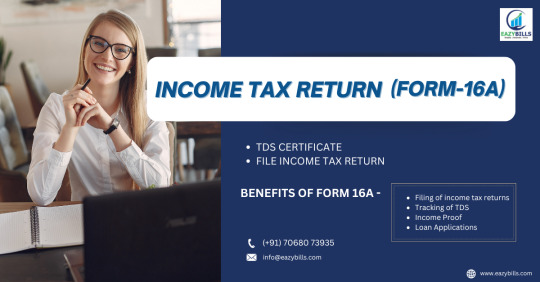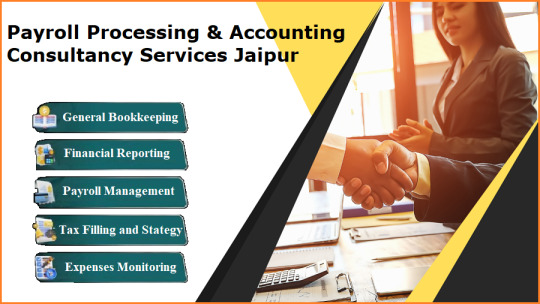#TDS filing software
Explore tagged Tumblr posts
Text
GST RETURN
0 notes
Text
What is GST Simulation Software? A Complete Guide

The introduction of Goods and Services Tax (GST) has transformed tax systems worldwide, simplifying taxation while posing new challenges for businesses, particularly in compliance and accurate tax calculation. GST Simulation Software has become an invaluable tool for businesses of all sizes, providing a digital solution to manage GST calculations, reporting, and compliance. But what exactly is GST Simulation Software, and how can it help organizations? In this comprehensive guide, we’ll dive into everything you need to know about GST Simulation Software, its benefits, features, and how to choose the right software for your business.
Table of Contents
What is GST Simulation Software?
How Does GST Simulation Software Work?
Key Features of GST Simulation Software
Benefits of Using GST Simulation Software
Types of GST Simulation Software
Common Applications of GST Simulation Software
How to Implement GST Simulation Software in Your Business
Tips for Choosing the Right GST Simulation Software
Top GST Simulation Software in the Market
Potential Challenges with GST Simulation Software
Conclusion
1. What is GST Simulation Software?
GST Simulation Software is a digital tool designed to automate and simplify GST-related tasks. It helps businesses calculate and simulate their GST obligations based on the current GST rates, laws, and regulations. By using this software, companies can predict their GST liabilities, prepare for tax filings, and avoid costly errors in tax reporting.
This software is particularly useful for businesses operating in multiple tax jurisdictions, as it incorporates region-specific rules and automates compliance, reducing the risk of human error. Essentially, GST Simulation Software ensures that businesses adhere to tax laws while simplifying the process of managing their tax obligations.
2. How Does GST Simulation Software Work?
GST Simulation Software uses real-time data and rule-based algorithms to calculate and simulate GST. The software typically integrates with a company’s accounting or ERP system, enabling it to access financial data directly. Based on this information, it applies GST rates to different transactions, depending on the nature of goods and services, jurisdiction, and applicable exemptions.
Many GST Simulation Software platforms are powered by machine learning and artificial intelligence, which allow them to stay up-to-date with changing tax regulations and predict GST amounts accurately. By running various simulations, businesses can get insights into their potential tax liabilities and prepare accordingly.
3. Key Features of GST Simulation Software
While the features of GST Simulation Software can vary, here are some common ones that help businesses manage their GST obligations efficiently:
Automated Calculations: Calculates GST based on applicable tax rates, making it easier to handle complex transactions.
Multi-Jurisdiction Compliance: Supports multiple regions and jurisdictions, ensuring the right rates and rules are applied for each location.
Real-Time Reporting: Provides up-to-date reports on tax liabilities, helping companies stay compliant and informed.
Data Integration: Integrates with accounting and ERP systems for seamless data transfer and accurate calculations.
Customizable Dashboards: Allows users to customize reports and dashboards to view important metrics at a glance.
Error Detection: Identifies discrepancies and errors in tax calculations to reduce risk and ensure accuracy.
User-Friendly Interface: Many tools offer easy-to-navigate interfaces that make it simple for users of all experience levels.
4. Benefits of Using GST Simulation Software
Using GST Simulation Software offers several benefits, including:
a) Enhanced Compliance
With automated updates to tax laws and regulations, businesses can stay compliant without constantly monitoring changes manually. This reduces the risk of non-compliance, which can lead to penalties.
b) Time Efficiency
Manual GST calculations are time-consuming, especially for large businesses with extensive transactions. GST Simulation Software automates these tasks, saving valuable time for finance teams.
c) Accuracy and Reduced Errors
By using rule-based calculations, the software ensures accuracy in GST simulation, minimizing the chance of human error in tax calculations.
d) Cost Savings
Automating GST management with software reduces the need for dedicated tax specialists and minimizes potential fines, leading to significant cost savings.
e) Data-Driven Insights
Many GST Simulation Software tools come with analytics capabilities, providing insights into GST trends and helping companies make data-driven decisions.
5. Types of GST Simulation Software
There are several types of GST Simulation Software tailored to different business needs:
a) Cloud-Based GST Software
This type of software is hosted on the cloud, offering easy access from any device and reducing the need for on-premise infrastructure. It’s suitable for businesses that require flexibility and scalability.
b) On-Premise GST Software
On-premise GST Simulation Software is installed on a company’s local servers, giving them complete control over their data. It’s a better fit for businesses with specific security or customization requirements.
c) Hybrid GST Software
Hybrid software combines elements of both cloud and on-premise solutions, giving companies the flexibility to manage certain operations in-house while using cloud capabilities for other tasks.
d) Industry-Specific GST Software
Some software solutions are designed for specific industries with unique GST requirements, such as manufacturing, retail, or healthcare. These solutions are tailored to meet the distinct needs of these industries.
6. Common Applications of GST Simulation Software
GST Simulation Software is versatile and can be used in various applications:
Tax Calculation: Calculate GST on individual transactions based on product type, jurisdiction, and other factors.
GST Return Preparation: Generate reports required for GST returns, simplifying the filing process.
Audit Support: Generate detailed reports and maintain records for audits.
Financial Forecasting: Predict future tax liabilities based on simulated scenarios and projected financial performance.
Scenario Analysis: Run simulations to understand how changes in tax laws or rates might impact your business.
7. How to Implement GST Simulation Software in Your Business
Implementing GST Simulation Software involves several steps:
Identify Your Business Needs: Determine the specific needs of your business and the type of software that best fits those needs.
Evaluate Software Options: Research different software providers, looking at features, compatibility, and cost.
Plan for Integration: Ensure the software integrates seamlessly with your existing systems, such as your ERP or accounting software.
Training and Onboarding: Train your staff on how to use the software effectively.
Monitor and Optimize: Regularly assess the software’s performance and make adjustments as needed to maximize efficiency.
8. Tips for Choosing the Right GST Simulation Software
Choosing the right GST Simulation Software can be overwhelming with so many options on the market. Here are a few tips:
Understand Your Budget: Choose software that fits within your budget but still provides the features you need.
Look for Scalability: Select software that can grow with your business, especially if you plan on expanding operations.
Check for Customer Support: Look for providers that offer comprehensive customer support to help with setup, troubleshooting, and maintenance.
Consider Security Features: Ensure the software has robust security features, particularly if handling sensitive financial data.
Evaluate Usability: Opt for software that is user-friendly and provides an intuitive interface for your team.
9. Top GST Simulation Software in the Market
Here’s a look at some of the top GST Simulation Software currently available:
Zoho Books: Known for its user-friendly interface and strong integration capabilities, Zoho Books is ideal for small to medium-sized businesses.
Tally ERP 9: Popular in various regions, especially India, Tally ERP 9 offers robust GST capabilities and a comprehensive set of features for accounting and compliance.
QuickBooks: This software provides excellent GST simulation features, along with a range of accounting tools for small businesses.
SAP GST Solutions: SAP provides a high-level GST simulation solution suitable for large corporations needing extensive customization.
10. Potential Challenges with GST Simulation Software
While GST Simulation Software offers many benefits, there are potential challenges to be aware of:
Initial Setup Costs: Some software may require a significant upfront investment, particularly for on-premise solutions.
Training Requirements: Employees may need time and training to learn the new software, which could temporarily impact productivity.
Data Security: Cloud-based solutions need to ensure data protection to prevent unauthorized access or breaches.
Continuous Updates: GST regulations change frequently, and if the software is not updated promptly, it could lead to inaccuracies in calculations.
GST Simulation Software is an essential tool for businesses navigating the complexities of Goods and Services Tax. By automating tax calculations, providing real-time reporting, and ensuring compliance, it empowers organizations to manage their GST obligations with greater accuracy and efficiency. While the initial investment and training requirements can be challenging, the long-term benefits in terms of time, cost savings, and data accuracy make it a worthwhile consideration for any business subject to GST regulations. When selecting GST Simulation Software, businesses should carefully assess their specific needs, budget, and desired features to choose a solution that supports their tax management goals effectively.
For More Details Visit us
StudyAccounts.com
#GST simulation software#GST filing simulation software#GST simulation software for institutes#ITR simulation software#Income tax simulation software#Gulf VAT simulation software#TDS Simulation Software#TAX Simulation Software for institutes
0 notes
Text
A comprehensive guide to Form 16A: A TDS Certificate
Form 16A is a TDS certificate that is issued by the deductor on a quarterly basis. It is a statement concerning the nature of payments, the amount of TDS, and the deposited TDS payments to the Income Tax department. It also consists of brokerage, interest, professional fees, contractual payments, rent, and other sources of income.
Unlike Form 16, which only consist salary structure, Form 16A of income tax charge TDS from:
Receipts from business or profession fees.
Rental receipts from a property or rent.
Sale proceeds from capital assets.
Additional source.

Important components of Form 16A
The important components of Form 16A are:��
Details of the Employer: It contains the name, TAN, and PAN of the employer.
Details of Employee: It contains the name, TAN, and PAN of the employee.
Mode of Payment: Both offline and online modes of payment are available.
Receipt number of TDS: The receipt number of TDS helps in the tracking of back details.
The date and deposit tax amount with the income tax department help track information.
Significance of Form 16A
Form 16A plays a pivotal role while filing an income tax return, especially when someone has other sources of income apart from their salary. Here are the key benefits of Form 16A:
Filing of income tax returns: The details contained in Form 16A help employees file their income tax returns. It guides employees in reporting their total income, which includes salary and other sources.
Tracking of TDS: It helps every individual keep track of the tax deducted at source (TDS) on their income. It gives you a summary of TDS deducted at source.
Income Proof: Form 16A works as evidence of an individual's total earnings from other sources. Government agencies and financial institutions, like banks, easily accept this source as income proof.
Loan Applications: This form is important in verifying the loan applications. Financial institutions often need a record of the assets and liabilities of an individual to check the guarantee on loan repayment.
How to download Form 16A?
Below are the following steps to download Form 16A:
Visit the official website of the income tax department.
Complete the registration process on the website.
Click the "Download" tab, and then select Form 16A.
Fill in the PAN details, and then click “Go to continue.”.
Click submit and download Form 16A.
What is the difference between Form 16 and Form 16A?
Form 16 and Form 16A are both TDS certificates, but there are certain differences between them. The following are the differences between Form 16 and Form 16A:
Form 16 is a TDS certificate deducted from salary, whereas Form 16A is issued for income other than salary.
Form 16 is issued by the employer, whereas Form 16A is issued by financial institutions.
Form 16 is used for deducting tax from salary, whereas Form 16A is for removing taxes from another source of income apart from salary.
Final Thoughts
Paying taxes is the responsibility of the citizens of the nation. It is evident that the process of filing an income tax return and Form 16A is restless and troublesome. Some technical terms of income tax are not known to the new taxpayer. Worry not, because Eazybills will solve every tax-related problem and also offer TDS tracking.
So? What are you waiting for? Connect to us today through our website, where our professional team will guide you according to your requirements.
#form 16A#income tax return#tds certificate#file income tax return#easy billing software#gst billing software#free invoicing software#billing software#free billing software#best billing software#online billing software#online invoicing software#best invoice software
0 notes
Text
Specially designed Tally Prime Courses for Accountants & Account Managers
Specially designed Tally Prime Courses for Accountants & Account Managers
Know more:
💬- https://bit.ly/AscentSoftwareSolutions
📷- 9075056050 / 9822604098
#AscentSoftwareSolutions
#Tally #TallyPrime #Accountants #TallySolutions #Accounting #Finance #GST #TDS #Payroll #ITRFILLING #Pune

#ascent software solutions#ascentsoftwaresolutions#accountant#accounting services in dubai#finance#economy#tallyprime#tally mobile#tally course#GST#tds#payroll#tax#itr filing
0 notes
Text
EARLY DAYS OF MALICIOUS SOFTWARE


Wanna know something about my recent project "Malicious Software"? It wasn't originally going to be a project, at all.
ERA.TXT was actually just a Roblox OC and she was inspired by the Stereotypical Obby game (by concept), her design was taken from TDS Commander because i used to be obsessed with him. For the past few days/weeks i created more malware ocs out of boredom (e.g Captain Rensen).
But then one day, i thought "What if ERA.TXT had another person with her?" and because i was in the middle of watching Death Note, i created KIRA.EXE with Light Yagami as his inspiration in mind which eventually lead to the Malicious Software project's creation, however having a crush on a fictional character doesn't last long and will fade away.
Because i started to lose interest with TDS Commander, i changed ERA.TXT's whole character (later tweaking her design abit) and made her apart of the Malicious Software project. For KIRA.EXE's case, i changed his clothes because it didn't felt right for him.
tag the oc who was originally a fandom based oc (and perhaps talk about what they were like before being reworked)
#Also Kiras command prompt is basically like the death note except you can do other things besides killing people#Didn't i also mentioned that ERA TXT was shipped with TDS Commander#Yeaahhhhh that information is now outdated#i later found out that TXT files can't really be viruses unless it's an exe#sooooo expect possible new lore for ERA TXT#KIRA EXE had a few design changes because the shirts/pants i purchased were awful#malicious software#malware ocs#malicious software project#computer virus#computer virus oc
441 notes
·
View notes
Text
Payroll Processing in India by MAS LLP: Streamlining Your Business Operations
In today’s fast-paced business environment, efficient payroll management is essential for any organization. Payroll processing involves managing employee salaries, benefits, taxes, and deductions, making it a complex and time-consuming task. For businesses operating in India, outsourcing payroll processing to professional services like MAS LLP can offer immense benefits, allowing you to focus on your core business while ensuring compliance with local regulations.

What is Payroll Processing? Payroll processing refers to the administration of employees' financial records, including salaries, bonuses, deductions, and net pay. It also encompasses tasks like generating payslips, managing leave entitlements, and ensuring timely tax payments. In India, payroll processing must adhere to various legal requirements, including labor laws, tax regulations, and statutory compliances such as Provident Fund (PF), Employee State Insurance (ESI), and professional tax.
Why Choose Payroll Processing in India by MAS LLP? MAS LLP is a trusted provider of payroll services in India, known for its efficient and accurate payroll management solutions. Here’s why MAS LLP is the right partner for your business:
Expertise in Local Compliance India’s payroll system is governed by multiple laws and regulations that vary across states. MAS LLP’s team of payroll experts ensures your business stays compliant with all statutory requirements, reducing the risk of fines and legal complications.
Customized Solutions MAS LLP understands that every business has unique payroll needs. They offer tailored payroll processing solutions that fit the size and scope of your business, ensuring seamless operations without unnecessary costs.
Cutting-Edge Technology With the integration of modern payroll software, MAS LLP provides automated payroll services that minimize errors and ensure data security. Their technology-driven approach enables real-time reporting, helping businesses monitor their payroll activities efficiently.
Cost-Effective Services Managing payroll in-house can be resource-intensive, requiring dedicated staff and software tools. Outsourcing payroll processing to MAS LLP helps reduce overhead costs while ensuring professional management of your payroll functions.
Focus on Core Business By outsourcing payroll tasks to MAS LLP, companies can redirect their focus toward strategic growth and core operations, rather than being bogged down by administrative duties.
Key Payroll Services Offered by MAS LLP MAS LLP offers a comprehensive range of payroll services, including:
Salary Calculation and Disbursement: Timely calculation and payment of employee salaries, bonuses, and incentives. Tax Management: Handling employee income tax, TDS (Tax Deducted at Source) calculations, and filing returns. Statutory Compliance: Management of Provident Fund (PF), Employee State Insurance (ESI), and other statutory deductions. Payslip Generation: Providing detailed and compliant payslips to employees. Leave and Attendance Management: Accurate tracking and integration of employee leave and attendance into payroll. Employee Data Management: Maintaining up-to-date employee records for payroll and statutory purposes. The Importance of Accurate Payroll Processing in India Accurate payroll processing is critical for employee satisfaction, legal compliance, and financial health. Errors in payroll can lead to dissatisfaction among employees, tax penalties, and damage to your company's reputation. By partnering with MAS LLP, businesses in India can ensure that their payroll is handled with precision, avoiding any potential pitfalls.
Why Payroll Processing is a Challenge in India India's payroll landscape is complicated due to:
Diverse Labor Laws: Each state in India has its own labor regulations, which makes staying compliant a complex task. Frequent Changes in Tax Laws: Payroll processing involves staying up-to-date with frequent changes in tax rates, deductions, and statutory compliances. Cultural Nuances: Payroll needs to reflect various allowances and benefits specific to Indian employees, making it more intricate than in many other countries. MAS LLP helps businesses navigate these challenges effortlessly, ensuring smooth payroll operations.
Conclusion For businesses operating in India, efficient payroll processing is crucial for legal compliance and employee satisfaction. By partnering with MAS LLP, companies can access expert payroll services that streamline their operations, reduce administrative burdens, and ensure accurate and timely payroll management.
#accounting & bookkeeping services in india#audit#businessregistration#chartered accountant#foreign companies registration in india#income tax#auditor#taxation#ap management services
4 notes
·
View notes
Text
quantumharrelltelecom.tech’s Quantum Dara™ [quantumdara.com] Assistant Network to 1698att-internetair.com’s Private Domain Communication [D.C.] Portal Address [PA] of 1698 qdara.tech’s 1968 quantumharrelltech.com Domain of Digital Sovereignty [DDS]… Digitally CREATING [D.C.] ANU GOLDEN 9 Ether [AGE] 2023-2223 WEALTH INDEX of Financial Independence [Wi-Fi]… since I.B. Microsoft’s [IBM’s] Implemented Control-Alt-Delete [iCAD2.com] Proprietary Language Learning Computer [LLC] PATENT Architect [PA] of Automated [PA] Integrated Drafting [PAID] Graphic Design Web Format [DWF] Files on Autodesk.com’s Interactive [A.i.] Technical Data Software [TDS] Network [TN]… Logistically [TNL] Looping Licensed Communication [LLC] Systems w/Intelligent METADATA [I’M] ENCRYPTIONS of quantumharrelltech.com’s Highly Complex [ADVANCED] Ancient 9 Ether Cosmic Algorithmic [CA] Computational [Compton] STAR WEB GATEWAY Language Architecture [L.A.] Embedded w/Optical IP Switching [OIS] Network Connections Electronically Transferring [E.T.] Alternate [ETA] Direct Currency [D.C.] CAPITAL [D.C.] from enqi-nudimmud.com’s GOLDEN Earth [Qi] MINING ESTATE [ME] of 1968-michaelharrelljr.com Using Official quantumharrelltech.ca.gov Military Hardware [MH] and Vendor-Independent Encryption Framework called 6g-quantumharrell.tech’s BLK-CRYPTO LLC @ quantumharrelltelecom.tech
WELCOME BACK HOME IMMORTAL [HIM] U.S. MILITARY KING SOLOMON-MICHAEL HARRELL, JR.™

i.b.monk [ibm.com] mode [i’m] tech [IT] steelecartel.com @ quantumharrelltech.ca.gov

Quantum Computing Intel Architect [CIA] Technocrat 1968-michaelharrelljr.com @ quantumharrelltelecom.tech

1968-michaelharrelljr.com ANU GOLDEN 9 ETHER [AGE] kingtutdna.com Genetic LUZ Clone KING OF KINGS LORD OF LORDS… Under the Shadow [U.S.] of Invisible MOON [I’M] RITUALS in Old America [MU ATLANTIS]

ommmmm.tech wealth @ quantumharrelltech.com

ommmmm.tech wealth @ quantumharrelltech.com

ommmmm.tech wealth @ quantumharrelltech.com

ommmmm.tech wealth @ quantumharrelltech.com

ommmmm.tech wealth @ quantumharrelltech.com

ommmmm.tech wealth @ quantumharrelltech.com

ommmmm.tech wealth @ quantumharrelltech.com

ommmmm.tech wealth @ quantumharrelltech.com

ommmmm.tech wealth @ quantumharrelltech.com

ommmmm.tech wealth @ quantumharrelltech.com

ommmmm.tech wealth @ quantumharrelltech.com

ommmmm.tech wealth @ quantumharrelltech.com

ommmmm.tech wealth @ quantumharrelltech.com

ommmmm.tech wealth @ quantumharrelltech.com

ommmmm.tech wealth @ quantumharrelltech.com

ommmmm.tech wealth @ quantumharrelltech.com

ommmmm.tech wealth @ quantumharrelltech.com

ommmmm.tech wealth @ quantumharrelltech.com

ommmmm.tech wealth @ quantumharrelltech.com

ommmmm.tech wealth @ quantumharrelltech.com

ommmmm.tech wealth @ quantumharrelltech.com

ommmmm.tech wealth @ quantumharrelltech.com

ommmmm.tech wealth @ quantumharrelltech.com

EYE SEE U B4 U C ME... I [MI = MICHAEL] ALL [MA] SEEING EYE ILLUMINATI

ommmmm.tech wealth pyramid @ quantumharrelltech.com

© 1698-2223 quantumharrelltech.com - ALL The_Octagon_(Egypt) DotCom [D.C.] defense.gov Department Domain Communication [D.C.] Rights Reserved @ quantumharrelltech.ca.gov
#u.s. michael harrell#kang solomon#quantumharrelltech#king tut#mu:13#harrelltut#kemet#o michael#quantumharrelltut#i need a new wealth index#trillionaire#quadrillionaire#sextillion#department of defense#quantum dara#qdara#quantum family banking in switzerland
2 notes
·
View notes
Text
Understanding Statutory Compliance: A Key Element for Business Success.

The Importance of Statutory Compliance for Business Success
Statutory compliance is an essential aspect of business operations that ensures a company adheres to legal and regulatory requirements set by the government. Failing to comply with statutory regulations for software can lead to fines, penalties, or even legal action. This blog explores the importance of statutory compliance, key areas of compliance, and how businesses can ensure they remain compliant.
What is Statutory Compliance?
Statutory compliance refers to a company's obligation to comply with all the laws, rules, and regulations set by local, state, and central government authorities. These regulations cover various aspects of business operations, including labor laws, tax laws, environmental regulations, and safety standards. The primary goal of statutory compliance is to ensure businesses operate ethically and lawfully while safeguarding employee rights.
Key Areas of Statutory Compliance
Labor and Employment Laws
Companies must comply with labor laws related to employee welfare, working hours, minimum wages, gratuity, and maternity benefits. In India, key acts like the Factories Act, Payment of Gratuity Act, and Employee Provident Fund (EPF) Act are crucial for compliance.
Tax Compliance
Businesses must comply with tax regulations, including the Goods and Services Tax (GST), income tax, and tax deducted at source (TDS). Proper tax filings and timely payments are essential to avoid legal issues and fines.
Health and Safety Regulations
Ensuring a safe working environment is not just good practice but also a legal requirement. Compliance with health and safety laws, such as the Occupational Safety and Health Act (OSHA), helps protect employees and prevents workplace accidents.
Environmental Regulations
Companies must adhere to environmental laws related to waste disposal, emissions, and resource usage. These regulations, such as those under the Environment Protection Act, aim to reduce the environmental impact of businesses.
Importance of Statutory Compliance
Avoiding Penalties and Legal Risks,
Failure to comply with statutory regulations can lead to hefty fines, penalties, or legal action, damaging the company’s reputation and finances.
Building Trust and Credibility
A company that is compliant with all relevant laws demonstrates its commitment to ethical business practices, which helps build trust with employees, customers, and stakeholders.
Employee Satisfaction and Retention
Compliance with labor laws ensures employee welfare, leading to higher job satisfaction, better retention rates, and a positive work environment.
Sustained Business Growth
Staying compliant allows businesses to focus on growth and expansion without the risk of legal setbacks. It also ensures that the company remains competitive in the market.
How to Ensure Statutory Compliance
Regular Audits and Monitoring
Conduct regular internal audits and stay updated with changes in regulations to ensure continuous compliance. Businesses can also hire third-party compliance experts to evaluate their practices.
Training and Awareness Programs
Educate employees and management about statutory compliance software and the importance of adhering to legal standards. This can prevent accidental non-compliance due to a lack of awareness.
Implement Compliance Management Systems
Use compliance management software or systems to streamline compliance-related tasks, monitor deadlines, and track necessary documents and filings.
Conclusion
Statutory compliance is vital for businesses to operate legally and ethically. By adhering to the relevant laws and regulations, companies can avoid legal risks, build trust with stakeholders, and create a safe and fair workplace for employees. Businesses that prioritize statutory compliance not only ensure smooth operations but also pave the way for long-term success and growth.
0 notes
Text
Streamline Your LLP in Jaipur: GST, Payroll, Bookkeeping & Accounting Made Easy
Starting an LLP in Jaipur? Don't let taxes and paperwork bog you down. Many LLPs find it hard to keep up with GST registration, payroll, and accounting. Good news! Expert help can smooth out these processes. This saves you time and money. This article will cover GST registration, payroll, bookkeeping, and accounting services for LLPs. Ready to make things easier?
GST Registration for LLPs in Jaipur: A Step-by-Step Guide
GST registration can feel like climbing a mountain. But it's a must for most LLPs. Especially those in Jaipur. Understanding GST is key. It's not just about following the rules. It's about growing your business the right way.
Understanding GST and Its Applicability to LLPs
GST, or Goods and Services Tax, is a tax on most sales. It's vital for LLPs because it affects how you price goods/services. It also dictates when and how you pay taxes.
Who needs to register for GST? If your LLP's turnover exceeds ₹20 lakh (₹10 lakh in some special category states), you must register. Even if turnover is lower, registration is smart. It lets you claim input tax credits. This lowers your overall tax burden.
GST registration offers more than just compliance. It boosts your business's credibility. Registered businesses can work with larger companies. They can also sell across state lines without issues.
The GST Registration Process: Documents and Procedures
Ready to register? First, gather your documents. Second, understand the steps. It's easier than you might think.
Here's what you'll need:
LLP agreement
PAN card of the LLP and partners
Address proof (electricity bill, rent agreement)
Partners' identity and address proof (Aadhaar, passport)
Bank account details
Now, the online process:
Visit the GST portal.
Create a user account.
Fill out the GST REG-01 form.
Upload required documents.
Submit the application.
Avoid these common mistakes:
Incorrect details
Missing documents
Delaying the application
Need local help? Contact the Jaipur GST office for guidance. They can answer questions about registering.
Post-Registration Compliance: Returns and Record-Keeping
Registering is just the first step. You must file GST returns on time. You also need to maintain accurate records.
Different returns exist. GSTR-1 is for sales. GSTR-3B is a summary return. GSTR-9 is an annual return. Each has its own deadline. Missing these can result in penalties.
Keep these practices in mind:
Maintain all invoices.
Reconcile sales and purchase data regularly.
Use accounting software to track transactions.
Payroll Processing for LLPs in Jaipur: Ensuring Accuracy and Compliance
Payroll in India is complicated. Especially for LLPs. Many rules and regulations can feel like a maze. A good payroll system is essential. This makes sure employees are paid correctly and on time. It also ensures you're compliant with the law.
Setting Up a Compliant Payroll System
A payroll system isn't just about paying salaries. It's about managing employee data, calculating deductions, and filing taxes. Get all your ducks in a row.
Key components include:
Employee information (name, address, PAN, Aadhaar)
Salary structure (basic, allowances, deductions)
Attendance records
Leave management
Keep detailed records of everything. This can save you from trouble later.
Should you use payroll software or outsource? The software can be cost-effective. But outsourcing saves time and hassle. For Jaipur LLPs, many providers offer tailored solutions.
Calculating and Deducting Taxes (TDS, EPF, ESI)
Taxes are a crucial part of payroll. You must deduct TDS (Tax Deducted at Source), EPF (Employees' Provident Fund), and ESI (Employees' State Insurance).
TDS is income tax deducted from employee salaries. EPF is a retirement savings scheme. ESI provides medical benefits. Each has its own rules and rates.
Filing deadlines are strict. Miss them, and you'll face penalties. Stay organized. Use software to automate calculations. This ensures accuracy.
Managing Leaves, Attendance, and Reimbursements
Payroll isn't just about money. It's about managing time. Tracking leaves, attendance, and reimbursements is essential.
Have clear leave policies. Use a system to track employee attendance. Set clear reimbursement procedures. These include travel and medical expenses. This prevents misunderstandings. It keeps employees happy.
Bookkeeping Services for LLPs in Jaipur: Maintaining Financial Health
Bookkeeping is the backbone of your finances. Without it, you're flying blind. Accurate bookkeeping helps you make smart decisions. It keeps you compliant.
Setting Up a Chart of Accounts
A chart of accounts is a list of all your accounts. These are assets, liabilities, equity, income, and expenses. It's the foundation of your financial records.
Customize the chart of accounts. Match it to your LLP's needs. This will allow you to track income and expenses easily, showing where money is coming from and where it is going.
Recording Financial Transactions Accurately
Every transaction matters. Record each one correctly. This is called double-entry bookkeeping. Each transaction affects two accounts.
Use accounting software. It automates this process. Reconcile bank statements monthly. This detects errors. It ensures accuracy.
Generating Financial Statements (Profit & Loss, Balance Sheet)
Financial statements tell your financial story. The profit and loss (P&L) statement shows your income and expenses. The balance sheet shows your assets, liabilities, and equity.
Use these statements to understand your business. Are you making a profit? What are your debts? Where can you improve?
Accounting Services for LLPs in Jaipur: Beyond Bookkeeping
Accounting goes beyond bookkeeping. It involves analyzing data. It also looks at making strategic decisions. It provides insights for long-term growth.
Financial Analysis and Reporting
Financial analysis turns data into information. Use KPIs (Key Performance Indicators). Track things like revenue growth and profit margins.
Prepare management reports for your partners. These reports should be:
Easy to understand
Actionable
Focused on key metrics
Tax Planning and Compliance
Tax planning minimizes your tax liabilities legally. Look for deductions and exemptions. This lowers your tax bill.
File income tax returns on time. This prevents penalties. Consider getting help from a tax advisor in Jaipur. They can help you navigate complex rules.
Auditing and Assurance
Audits verify your financial records. An audit ensures accuracy. It also boosts confidence.
Different types of audits exist. Statutory audits are required by law. Internal audits improve controls. Choose the right type for your needs.
Conclusion:
We covered a lot! GST registration, payroll, bookkeeping, and accounting are vital. They're essential for LLPs in Jaipur. Professional services can streamline these processes.
These services save time and reduce stress. They also ensure compliance. They help you make informed decisions.
Ready to take control of your LLP's finances? Seek expert [Tax Veda Consulting] help today.

#accounting and payroll services#gst and company registration#tax filing and compliances services#tds
0 notes
Text
Feeling overwhelmed by tax season? Are you a Chartered Accountant or Tax professional in India struggling with complex calculations, mountains of paperwork, and the ever-changing tax landscape? This podcast is your one-stop shop for conquering tax season! Join us as we explore Electrocom's revolutionary EasyOffice and EasyGST software solutions, designed specifically to streamline your workflow, boost productivity, and ensure compliance.
#tds filing software#income tax filing software#income tax calculation software#tds return software#gst reconciliation software#tds return filing software#gst return filing software
0 notes
Text
E-accounting course near me
E-Accounting Course Near Me: The Future of Accounting Education
In today’s digital world, traditional accounting practices are rapidly evolving, making way for e-accounting—a modern approach that integrates accounting principles with digital tools and software. Whether you are a student, an entrepreneur, or a professional seeking to upskill, enrolling in an e-accounting course near me can be a game-changer for your career.
What is E-Accounting?
E-accounting, or electronic accounting, refers to the use of digital platforms, software, and cloud-based systems to manage financial records, bookkeeping, taxation, and auditing. Unlike conventional accounting, which relies on manual entries and paper records, e-accounting automates financial processes, ensuring accuracy and efficiency.
With advancements in technology, businesses worldwide are shifting towards digital accounting solutions, making proficiency in e-accounting a valuable skill in today’s job market.
Benefits of Enrolling in an E-Accounting Course
If you’re searching for an e-accounting course near me, you’re likely interested in enhancing your accounting knowledge and career prospects. Here are some compelling reasons to consider enrolling in an e-accounting course:
Practical Learning Experience – Courses provide hands-on training in popular accounting software like Tally, QuickBooks, SAP, and Zoho Books, ensuring that you gain real-world skills.
Career Advancement Opportunities – With expertise in e-accounting, you can explore job roles such as an accountant, tax consultant, financial analyst, or payroll executive.
Flexibility and Accessibility – Many institutes offer online and offline learning modes, making it easier for students and working professionals to attend classes at their convenience.
Up-to-Date Industry Knowledge – Courses cover the latest tax laws, GST implementation, e-filing, and financial regulations, keeping you updated with industry standards.
Cost-Effective Learning – Compared to full-time degrees, certification courses in e-accounting are budget-friendly and offer a high return on investment by boosting employability.
What to Expect in an E-Accounting Course?
A well-structured e-accounting course near me typically includes the following modules:
Introduction to Accounting Principles – Understanding financial statements, ledgers, and journal entries.
Software Training – Hands-on experience with accounting software such as Tally ERP 9, QuickBooks, and SAP FICO.
Taxation and Compliance – Learning GST, TDS, and income tax filing through e-filing portals.
Financial Reporting and Analysis – Understanding balance sheets, profit & loss statements, and cash flow management.
Payroll Management – Employee salary processing, PF, and ESI calculations.
How to Choose the Best E-Accounting Course Near Me?
With numerous institutions offering e-accounting courses, selecting the right one can be overwhelming. Here are some factors to consider:
Accreditation and Certification – Ensure the course is recognized by industry professionals and employers.
Experienced Faculty – Look for trainers with real-world experience in accounting and taxation.
Course Duration and Fees – Check if the course fits your schedule and budget.
Placement Assistance – Opt for institutes that offer internship and job placement support.
Student Reviews and Ratings – Research online reviews and testimonials to gauge the course quality.
Conclusion
In the age of digital transformation, proficiency in e-accounting is essential for anyone pursuing a career in finance or business management. By enrolling in an e-accounting course near me, you gain access to industry-relevant skills, practical knowledge, and better job opportunities. Whether you’re a beginner or a professional looking to upgrade your skills, this course can equip you with the expertise needed to excel in the financial world.
Take the first step towards a promising career—search for the best e-accounting course near you today!
0 notes
Text
What is GST Simulation Software? A Complete Guide
GST Simulation Software The introduction of Goods and Services Tax (GST) has transformed tax systems worldwide, simplifying taxation while posing new challenges for businesses, particularly in compliance and accurate tax calculation. GST Simulation Software has become an invaluable tool for businesses of all sizes, providing a digital solution to manage GST calculations, reporting, and…

View On WordPress
#GCC vat simulation software#GST filing simulation software#GST simulation software#Gulf VAT simulation software#Income tax simulation software#ITR simulation software for institutes#TDS Simulation Software
1 note
·
View note
Text
What is Tally? A Complete Overview

What is Tally? A Complete Overview
1. Introduction
In today’s digital age, businesses require robust accounting software to manage their finances efficiently. Whether you’re a small business owner, an accountant, or a corporate professional, keeping track of financial transactions is crucial. This is where Tally comes into play.
Tally is one of the most widely used accounting and enterprise resource planning (ERP) software in India and many other countries. It helps businesses with financial accounting, inventory management, taxation, payroll, and compliance while ensuring accuracy and ease of use.
In this blog, we’ll take a deep dive into Tally, its features, benefits, versions, and how it helps businesses.
2. What is Tally?
Tally is a powerful business management and accounting software developed by Tally Solutions Pvt. Ltd., an Indian multinational company. It was first launched in 1986 by Shyam Sunder Goenka and Bharat Goenka, and since then, it has grown to become one of the most popular accounting tools in the world.
Tally is primarily used for:
Bookkeeping and accounting
Inventory and stock management
GST and tax compliance
Banking and financial management
Payroll processing
Tally is well-known for its simplicity, speed, and scalability, making it a preferred choice for small, medium, and large businesses.
3. Key Features of Tally
Tally is packed with features that make it an all-in-one accounting solution for businesses. Some of its major features include:
a) User-Friendly Interface
Tally is designed with a simple and intuitive interface, making it easy to use, even for people with no accounting background.
b) Multi-Company Support
With Tally, users can manage multiple companies under one system, making it ideal for businesses with multiple branches or entities.
c) Accounting & Bookkeeping
Tally automates financial accounting processes, including:
Ledger creation
Voucher entries (sales, purchase, receipt, payment)
Trial balance
Profit & Loss statements
Balance sheets
d) Inventory & Stock Management
Tally helps businesses manage their stock, warehouses, and supply chain by offering:
Stock categories, groups, and items
Reorder levels and batch-wise tracking
Goods movement tracking
e) GST & Taxation Management
Tally is GST-compliant and helps businesses handle taxation smoothly:
GST invoice creation
Automatic GST return filing
TDS (Tax Deducted at Source) and TCS (Tax Collected at Source) management
VAT, Excise, and Service Tax compliance
f) Banking & Payment Management
Bank reconciliation
Cheque printing
Digital payment integrations
Loan and interest calculation
g) Payroll & Employee Management
Businesses can process employee salaries and manage:
Salary slips and pay structures
Provident Fund (PF) and Employee State Insurance (ESI) calculations
Attendance and leave tracking
h) Security & Data Protection
Tally provides data security with:
User role-based access
Data backup and restore features
Audit logging to track modifications
4. Different Versions of Tally
Tally has evolved significantly over the years. Below is a timeline of major Tally versions:
VersionKey FeaturesTally 4.5 (1990s)Basic accounting featuresTally 5.4 (1996)Inventory management addedTally 6.3 (2001)VAT and printing supportTally 7.2 (2005)Service tax, TDS, payroll addedTally 8.1 & 9 (2006–2009)Multilingual support, excise dutyTally ERP 9 (2009–2020)GST compliance, improved UITally Prime (2020 — Present)Modern UI, search feature, improved reports
Tally Prime is the latest and most advanced version, offering better performance, enhanced security, and a more user-friendly experience.
5. Why Use Tally?
Tally is widely adopted because of its various advantages, including:
a) Saves Time & Increases Efficiency
Tally automates accounting and bookkeeping processes, reducing manual errors and saving time.
b) Cost-Effective Solution
Tally is affordable compared to other ERP software, making it suitable for startups and small businesses.
c) Scalable & Flexible
Tally can handle the financial needs of small businesses, mid-sized companies, and large enterprises.
d) Tax & Compliance Ready
With built-in GST, TDS, and tax management, businesses can stay compliant with government regulations.
e) Easy Integration
Tally can be integrated with Excel, GST portals, banks, and e-commerce platforms.
6. How to Get Started with Tally?
If you are new to Tally, follow these steps to get started:
Download Tally Prime from the official Tally Solutions website.
Install Tally on your system (Windows OS is required).
Create a New Company with basic details like name, address, and GST number.
Set Up Ledgers and Vouchers for sales, purchases, and expenses.
Start Recording Transactions and generate financial reports.
7. Industries That Benefit from Tally
Tally is used across various industries:
Retail & Wholesale: Billing, inventory tracking, and stock management.
Manufacturing: Production, material costing, and warehouse management.
Service Sector: Invoicing, tax management, and payroll.
Freelancers & Consultants: Managing client payments and expenses.
NGOs & Non-Profits: Fund accounting and donor management.
8. Limitations of Tally
Despite its benefits, Tally has some limitations:
Limited Cloud Support: Tally is primarily desktop-based, unlike cloud ERPs.
No Mobile App: Lack of an official mobile application.
Not Ideal for Large Enterprises: Some large businesses prefer SAP or Oracle for complex operations.
9. Conclusion
Tally is one of the best accounting software solutions for businesses of all sizes. It simplifies financial management, taxation, inventory tracking, and payroll, helping companies run efficiently.
With Tally Prime, businesses can leverage advanced features, automation, and compliance tools for better financial control. While it may have some limitations, it remains a powerful, cost-effective, and widely used accounting tool.
WEBSITE: https://www.ficusoft.in/tally-training-in-chennai/
0 notes
Text
"Cost-Effective Accounting Outsourcing for Growing Companies in Delhi"
Introduction
As businesses expand, managing financial records, tax compliance, and bookkeeping becomes more complex. Growing companies in Delhi often struggle with the high costs of maintaining an in-house accounting team. This is where accounting outsourcing emerges as a game-changer, offering efficiency, compliance, and cost savings.
For companies seeking a reliable and cost-effective Accounting Outsourcing company in Delhi, We provides expert solutions tailored to meet the diverse financial needs of businesses. Their team of professionals ensures that companies can focus on growth while maintaining robust financial health.
This article explores the advantages of outsourcing accounting services, the key factors to consider when choosing a provider, and how businesses can benefit from accounting outsourcing solutions to streamline their financial processes in Delhi and Noida.
Why Accounting Outsourcing is Essential for Growing Companies
1. Cost Savings and Financial Efficiency
Account IQ Consulting Pvt. Ltd Hire and maintaining an in-house accounting team involves high expenses, including recruitment, salaries, benefits, office space, and accounting software. By outsourcing accounting services, businesses can significantly reduce operational costs while ensuring professional financial management. Accounting outsourcing companies offer flexible pricing models, allowing businesses to pay only for the services they require.
2. Expertise and Accuracy
Outsourced accounting firms employ qualified professionals with expertise in bookkeeping, tax compliance, payroll management, and financial reporting. These experts stay updated with the latest regulations and accounting standards, ensuring accuracy and reducing the risk of financial errors and non-compliance penalties.
3. Time-Saving and Increased Productivity
Managing finances internally can be time-consuming, diverting business owners' attention from core operations. Outsourcing accounting functions allows business leaders to focus on strategic decision-making, customer service, and expansion. Professional accountants handle financial statements, tax filing, and payroll processing, ensuring smooth operations without administrative burdens.
4. Scalability and Flexibility
As businesses grow, their financial needs evolve. Accounting outsourcing provides scalability, allowing companies to expand or reduce services based on their requirements. Whether a business needs full-fledged accounting services or specific tasks like tax planning and payroll processing, outsourcing offers flexible solutions.
5. Compliance with Regulatory Requirements
India’s tax laws and financial regulations are complex and frequently updated. Businesses that fail to comply with these regulations face penalties and legal issues. Outsourced accounting firms specialize in regulatory compliance, ensuring that businesses adhere to the latest tax laws, GST filings, and financial reporting standards.
Key Accounting Services Offered by Outsourcing Companies
1. Bookkeeping and Financial Record-Keeping
Accurate bookkeeping is essential for business success. Outsourced accounting firms manage:
General ledger maintenance
Accounts payable and receivable
Bank reconciliation
Financial statement preparation
2. Tax Preparation and Compliance
Tax compliance is a critical aspect of financial management. Outsourcing firms handle:
GST and income tax filings
Tax deductions and exemptions
Tax planning and advisory
Regulatory compliance with Indian tax laws
3. Payroll Management
Outsourced payroll services ensure timely salary disbursement and compliance with labor laws. These services include:
Salary calculations and processing
Provident fund (PF) and Employee State Insurance (ESI) management
TDS deductions and compliance
4. Financial Reporting and Analysis
Accurate financial reports are crucial for business decision-making. Outsourced accounting services provide:
Balance sheet preparation
Profit and loss statements
Budgeting and forecasting
Financial risk assessment
5. Audit Support and Risk Management
Businesses require robust financial management to minimize risks and ensure smooth audits. Outsourced firms assist with:
Internal and external audit support
Risk analysis and fraud prevention
Statutory compliance and reporting
How to Choose the Right Accounting Outsourcing Partner
1. Industry Experience and Reputation
Selecting an outsourcing partner with extensive experience in your industry ensures that they understand sector-specific financial requirements and compliance regulations. Check client testimonials and reviews to evaluate their reputation.
2. Use of Technology and Software
Modern accounting relies on advanced technology and cloud-based solutions. Ensure the outsourcing firm uses accounting software like:
Tally
QuickBooks
Zoho Books
SAP
Cloud-based platforms offer real-time access to financial data, enhancing transparency and decision-making.
3. Customization and Service Flexibility
Every business has unique financial needs. Choose an outsourcing firm that offers customized services tailored to your company’s size, industry, and growth stage. The firm should provide:
Scalable solutions
Flexible service models
Personalized financial strategies
4. Data Security and Confidentiality
Financial data is sensitive, requiring robust security measures. The outsourcing firm should follow:
Secure encryption protocols
Confidentiality agreements
Compliance with data protection regulations
5. Transparent Pricing Structure
A reliable outsourcing partner provides a transparent pricing model with no hidden costs. Before signing an agreement, ensure that the service package aligns with your budget and business goals.
The Role of Accounting Outsourcing in Noida’s Business Growth
While Delhi remains a central business hub, Noida has emerged as a preferred location for startups and multinational companies. Businesses operating in Noida can leverage expert cost-effective accounting outsourcing solutions designed to streamline finances and boost efficiency.
Benefits of Accounting Outsourcing for Noida-Based Companies:
Cost Reduction: Businesses save costs on in-house teams and infrastructure.
Compliance Management: Tax filings, GST, and statutory compliance are handled efficiently.
Improved Cash Flow Management: Timely bookkeeping and financial reporting ensure better financial planning.
Strategic Financial Guidance: Outsourced experts provide valuable insights for business expansion and investment planning.
With Noida’s rapid industrial growth, outsourced accounting services enable businesses to manage finances effectively while focusing on their core operations.
Why Choose Account IQ Consulting Pvt. Ltd for Accounting Outsourcing in Delhi?
For businesses looking for a trusted Accounting Outsourcing company in Delhi, Account IQ Consulting Pvt. Ltd offers comprehensive and cost-effective solutions. Their expert team provides:
Bookkeeping and financial reporting
Payroll management and compliance
Tax advisory and regulatory support
Scalable and customized accounting services
By partnering with Account IQ Consulting Pvt. Ltd, businesses can ensure financial accuracy, compliance, and long-term growth while reducing operational costs.
Conclusion
Outsourcing accounting services is a smart and strategic move for growing businesses in Delhi and Noida. It allows companies to reduce expenses, ensure compliance, and focus on expansion. By choosing the right outsourcing partner, businesses can streamline financial processes, minimize risks, and achieve long-term financial stability.
Whether you are a startup or an established enterprise, investing in professional accounting outsourcing will help you stay ahead in a competitive market. With the right expertise, technology, and strategic financial planning, outsourcing accounting functions can be the key to business success.
0 notes
Text
Payroll Software: The Secret Weapon for Stress-Free Salary Management

Managing payroll is not only about just paying salaries, it's about ensuring accuracy, compliance, and keeping your employees happy. Yet, many businesses are still stuck in the past, relying on outdated manual processes that lead to miscalculations, late payments, and a whole lot of stress. Can you imagine spending hours poring over spreadsheets, double-checking figures, and worrying about tax deductions. It's exhausting, right?
That's wherepayroll software comes in, the real game-changer in modern payroll management. Whether you're running a small business or a large enterprise, the right payroll software can eliminate errors, automate calculations, and make salary disbursement a breeze. Let's dive into how payroll management software is revolutionizing the way businesses handle salaries and why it's time to make the switch today.
The Challenges of Traditional Payroll Management
For years, businesses have been stuck with manual payroll processing, but let's face it—this method is a minefield of potential problems. Here are just a few of the pitfalls:
Human Errors: A simple mistake, like a misplaced decimal or incorrect tax calculation, can lead to huge salary discrepancies. It's easy to see how this can cause frustration and financial headaches for both employees and employers.
Time-Consuming: Processing payroll manually is a labor-intensive task that can take hours or even days. This not only reduces productivity but also takes away valuable time that could be spent on more strategic activities.
Compliance Risks: Tax laws and labor regulations are constantly changing, making it a real challenge to stay compliant. One misstep can result in costly fines and legal issues.
Data Security Concerns: Storing sensitive salary information in spreadsheets leaves it vulnerable to data breaches and unauthorized access. This is a serious risk that could compromise employee privacy and trust.
How Payroll Software Transforms Salary Management
Payroll software isn't just a tool; it's a smart investment in efficiency that can transform the way you manage payroll. Here's how it simplifies the process:
Automated Salary Computation: Imagine no longer having to manually calculate salaries. Payroll software takes care of everything, from attendance records to deductions, bonuses, and tax requirements. It's like having a personal assistant for all your payroll needs.
Ensures Compliance: The best payroll software stays on top of changing tax laws, handling deductions like TDS, PF, and ESI with ease. This means you can focus on running your business without worrying about compliance issues.
One-Click Payroll Processing: With payroll software, you can go from attendance records to generating payslips in just a few clicks. It's incredibly streamlined and saves you a ton of time.
Error-Free and Secure: Advanced security features protect your sensitive payroll data from fraud and breaches, giving you peace of mind. You can trust that your employees' information is safe.
Multi-Payment Modes: Whether you prefer bank transfers, UPI, or direct deposits, payroll software makes it easy to process salaries in a way that works best for your business. It's flexible and convenient.
Must-Have Features in Payroll Software
Not all payroll management software is created equal. Here’s what you should look for when choosing the right one:
Seamless Integration – The software should sync with HR, attendance, and accounting systems for a smooth workflow.
Employee Self-Service Portal – Allows employees to access payslips, tax documents, and leave records anytime.
Customisable Salary Structures – Supports different salary components like bonuses, overtime, deductions, and incentives.
Real-Time Reports – Generates financial reports and tax filings, ensuring better decision-making.
Scalability – Whether you have ten employees or a thousand, the software should handle payroll processing effortlessly.
Why Businesses Should Switch to Payroll Software Today
If your business still relies on manual payroll processing, it’s time to make the switch. Here’s why:
Saves Time and Reduces Costs – Automating payroll cuts down processing time and minimises the need for extra HR staff.
Ensures Accuracy and Transparency – Employees receive error-free salaries, boosting trust and satisfaction.
Enhances Data Security – Payroll software encrypts data and prevents unauthorised access, reducing fraud risks.
Supports Business Growth – As your business expands, payroll software scales effortlessly to meet increasing demands.
Conclusion: Let Payroll Software Do the Heavy Lifting!
Payroll processing no longer needs to be a stressful, time-consuming task. With the right payroll management software, businesses can ensure timely, accurate, and hassle-free salary disbursements.
If you’re looking for the best payroll software, Opportune HR offers a comprehensive solution tailored to your business needs. From automated salary calculations to seamless compliance management, Opportune HR makes payroll processing a breeze so you can focus on growing your business while keeping your employees happy! Isn’t it time to say goodbye to payroll headaches? Make the smart switch today!
0 notes